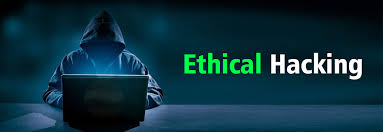Introduction
Ethical hacking is crucial in defending against cyber threats by identifying vulnerabilities before malicious hackers can exploit them. With the rise in cyber-attacks, the role of ethical hackers has become increasingly important.

The Role of Ethical Hackers
- Responsibilities: Conducting penetration tests, identifying security weaknesses, reporting and mitigating risks.
- Differences: Ethical hackers operate with permission and follow legal and ethical guidelines, unlike malicious hackers.
- Methodologies: Penetration testing, vulnerability assessments, security audits.
Skills Required for Ethical Hackers
- Technical Skills: Networking, programming (Python, C++), knowledge of security protocols.
- Soft Skills: Problem-solving, analytical thinking, attention to detail.
- Certifications: CEH (Certified Ethical Hacker), OSCP (Offensive Security Certified Professional).
Tools and Techniques Used by Ethical Hackers
- Common Tools: Metasploit for penetration testing, Wireshark for network analysis, Nmap for network scanning.
- Techniques: Exploiting vulnerabilities, social engineering, security assessments.
- Successful Penetration Testing: Real-world examples of ethical hacking engagements that prevented breaches.
Ethical Hacking in Action
- Case Studies: Instances where ethical hacking identified critical vulnerabilities in major organizations.
- Industries Benefiting: Finance, healthcare, government, e-commerce.
- Examples: Securing financial transactions, protecting patient data, safeguarding government infrastructure.
Challenges in Ethical Hacking
- Common Obstacles: Keeping up with evolving threats, balancing security with usability, legal constraints.
- Ethical Dilemmas: Ensuring responsible disclosure, maintaining privacy.
- Overcoming Challenges: Continuous education, collaboration with industry peers, adherence to ethical standards.
Future of Ethical Hacking
- Emerging Trends: AI and machine learning for threat detection, automation in penetration testing.
- Role of AI: Enhancing the efficiency and effectiveness of security measures.
- Preparing for the Future: Staying updated with technological advancements, gaining advanced certifications, understanding AI’s role in cybersecurity.
Conclusion
Ethical hacking is a dynamic and critical field in cybersecurity. Ethical hackers play a pivotal role in protecting organizations from cyber threats. Aspiring ethical hackers should focus on developing technical skills, obtaining relevant certifications, and committing to continuous learning.
More about Ethical hacking: https://en.wikipedia.org/wiki/Certified_ethical_hacker
Software testing blog: https://scriptedkiddies.com/quality-assurance-in-software-development/


